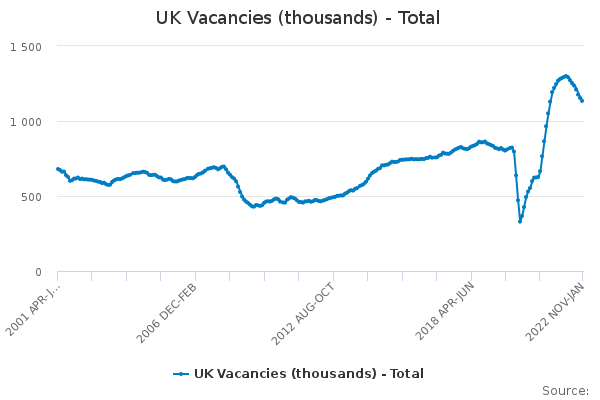
Forget trying to lure back rich retirees into the work force, mothers, disabled people and older workers hold the key to solving Britain’s unemployment problem, a new report says.
830,000 more adults have left the workforce since the start of the pandemic than have joined it; with more than three quarters of these people being aged 50 and above. However ministers have had little success trying to get them back to work.
The UK employment rate remains one percentage point lower than pre-pandemic, with employment for 16-to-64-year-olds at 75.6 per cent compared to 76.6 per cent in 2020.
New research from think tank Resolution Foundation has found that most of the people who left the work force during the pandemic were high paid professionals who were past retiring age. It will be hard to persuade these people, two thirds of whom own their own house outright, to “unretire”, the report says.
These people are unlikely to be dependent on government support so changes to the benefits system would have little effect, researchers argue.
The Department for Work and Pensions launched a drive last year targeted at the over 50s. A network of “50 PLUS Champions” were put in place across the UK, tasked with working with local Jobcentres to try and get retirees back into employment.
Instead, the government should focus on older workers, mothers and those with ill-health or a disability, the Resolution Foundation says.
Previous successes have been had increasing the number of these types of workers in employment, they argue. In the ten years running up to the pandemic, employment rates rose by 13 per cent for women aged 55-to-64 (compared to four per cent for men).

Employment rose by 5 per cent for coupled mothers during this time and the employment gap between those with or without a disability fell by five per cent between 2013 and 2022.
Its findings echo those of consultancy LCP who argued in a February report that the government was “barking up the wrong tree” by trying to lure retirees back to work. The number of “long term sick” has risen by more than 350,000 since the start of the pandemic, LCP found.
Researchers propose that the government rises the minimum age at which people can draw their private pension, to encourage older workers to stay in the work force. They should also reform childcare support so that mothers in lower income households can be helped back into work.
Policy makers should introduce a “right to return” period, which would require employers to keep jobs open to workers who are away due to sickness or disability, the report argues.
Shadow work and pensions secretary Jon Ashworth has put people with addiction or mental health issues at the heart of Labour’s plans to get people back into employment.

Labour hopes to expand support into workplaces to help those struggling with addiction or mental health issues before they drop out of work. Mr Ashworth also wants to increase support for these people at the beginning of their treatment.
He told The Guardian: “If you can support people in the first weeks or the first couple of months of the worklessness because of ill health, you’re more likely to help those people return to work than if they’ve been out of work for at least two years. But what’s happening at the moment is the government has written off a generation.”
Ministers have also considered scrapping the system used to assess eligibility for disability benefits to help people return to employment, The Times has reported. Under the reforms, claimants could continue to receive their payments after they return to employment.
Instead of trying to prove how ill they are, claimants might be asked to demonstrate what work they think they could take.
Rishi Sunak said in January that the government was looking at a range of measures to tackle inactivity, adding: “We need to look at how our welfare system is operating and [ask] is it operating in the way that we would like to make sure that we are supporting and incentivising people who can be, to be in work.”
Work and pensions secretary Mel Stride will likely publish a white paper on the issue ahead of the Spring Budget.
Louise Murphy, an economist at the Resolution Foundation, said: “We need to reboot progress on getting people into work, but we’re not going to achieve it by persuading the recent Covid cohort of older workers to ‘unretire’.
“Instead, we need to so more to encourage mothers in low-income families into work, and help people who need to take periods of time off for ill health stay attached to their jobs.”
A government spokesperson said: “We recognise one of our biggest challenges is how to support people to start or return to work, which is why the department is thoroughly reviewing workforce participation to understand what action should be taken on increased economic inactivity.
“As part of this work, we’re looking at plans to improve support for disabled people and people with long-term health conditions, as well as investing an extra £22m in employment support for the over 50s.”







